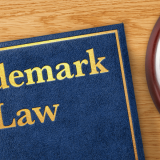Under the Trademarks Act, 1999 in India, various remedies are available to trademark owners to address instances of infringement, passing off, and other violations of trademark rights. These remedies aim to protect the interests of trademark owners and provide recourse against unauthorized use or misuse of their trademarks. Some of the key remedies under the Trademarks Act include:
Injunctions: One of the primary remedies available to trademark owners is the issuance of injunctions by the courts. Injunctions may be temporary (interim injunction) or permanent and are aimed at restraining the infringing party from continuing the unauthorized use of the trademark.
Damages: Trademark owners may seek damages or compensation for any losses suffered as a result of trademark infringement or passing off. Damages may include actual damages, which compensate for financial losses incurred, or statutory damages, which are predetermined amounts established by law.
Account of Profits: In addition to damages, trademark owners may be entitled to an account of profits earned by the infringing party through the unauthorized use of the trademark. An account of profits aims to deprive the infringing party of any unjust enrichment obtained through the infringement.
Delivery Up or Destruction: Courts may order the delivery up or destruction of infringing goods, labels, packaging, or other materials bearing the unauthorized trademark. This remedy prevents the further circulation or distribution of counterfeit or infringing products in the marketplace.
Anton Piller Orders: Anton Piller orders are court orders that allow trademark owners to conduct surprise searches and seizures at the premises of the infringing party to gather evidence of trademark infringement. These orders are used to prevent the destruction or removal of infringing materials.
Preventive Measures: Trademark owners may also seek preventive measures such as restraining orders or Mareva injunctions to freeze the assets of the infringing party pending the outcome of legal proceedings. These measures help prevent further harm or dissipation of assets by the infringing party.
Publication of Judgment: Courts may order the publication of judgments or court orders relating to trademark infringement or passing off to inform the public about the outcome of legal proceedings and deter future infringers.
Criminal Prosecution: In cases of serious trademark infringement, counterfeiting, or piracy, criminal prosecution may be pursued by filing a criminal complaint with the police or relevant law enforcement agencies. Criminal offenses under the Trademarks Act can result in criminal penalties, fines, and imprisonment for the infringers.
Overall, these remedies provide trademark owners with effective tools to enforce their rights, deter infringement, and protect the integrity and reputation of their trademarks in the marketplace. The choice of remedy depends on the specific circumstances of each case and the objectives of the trademark owner.







